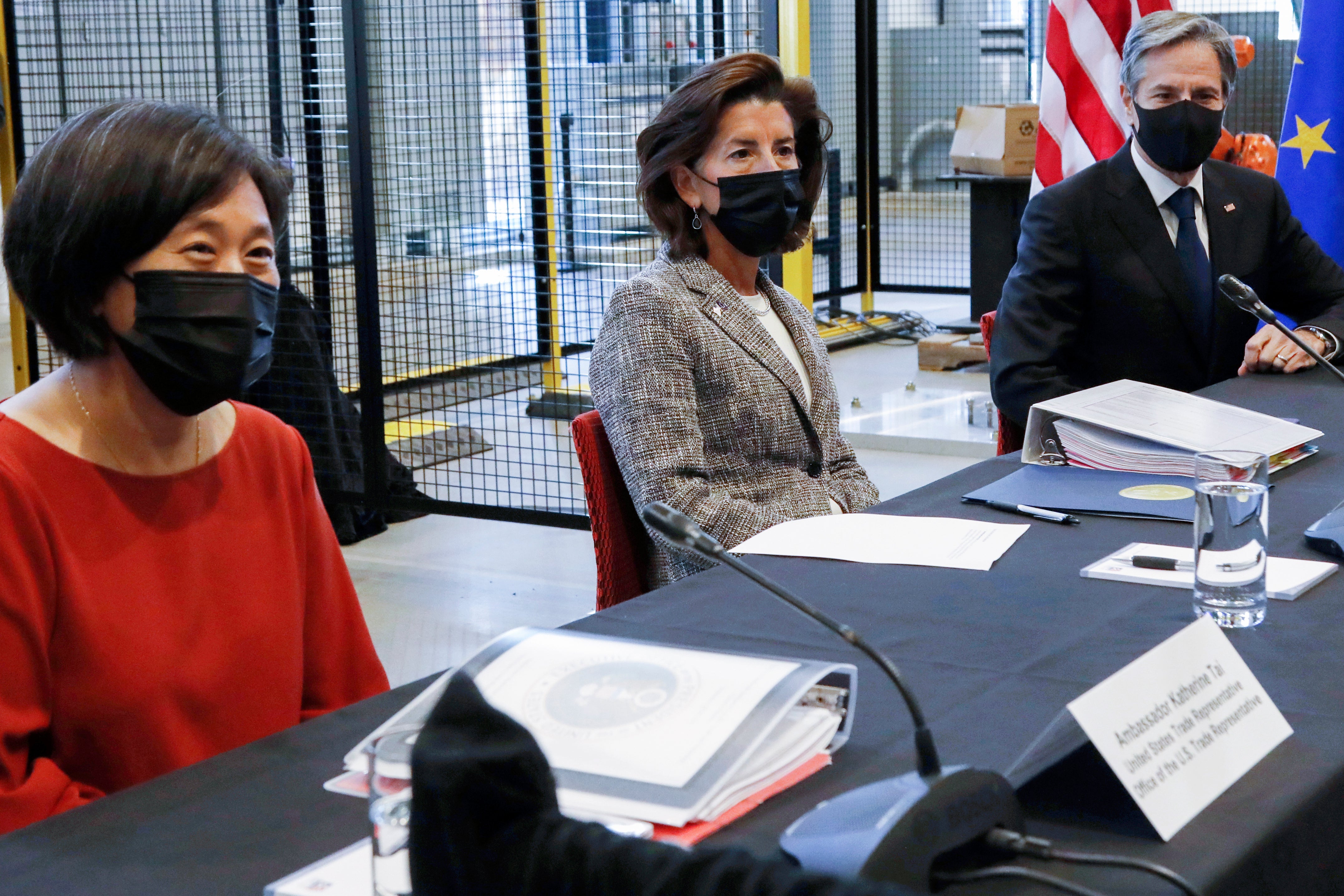Trade, tech talks between US and EU open in Pittsburgh
Secretary of State Antony Blinken and senior Biden administration officials are kicking off two days of trade and technology talks with European Union counterparts in Pittsburgh

Secretary of State Antony Blinken and a number of other senior Biden administration officials are kicking off two days of trade and technology talks with European Union counterparts in Pittsburgh
The two sides are hoping to make progress on several disputes, including U.S. tariffs on EU steel and aluminum imports, and a unified stance against predatory Chinese commercial policies. The atmosphere has been clouded by recent EU anger over being excluded from a new U.S.-British-Australian security initiative for the Indo-Pacific that aims to counter China’s increasing assertiveness in the region.
Blinken is being joined in Pittsburgh by Commerce Secretary Gina Raimondo and Trade Representative Katherine Tai. The European Commission delegation is headed by its two executive vice-presidents, Margrethe Vestager and Valdis Dombrovskis, and the EU’s ambassador to Washington Stavros Lambrinidis.
Administration officials say the talks in Pittsburgh — the inaugural meeting of the U.S.-EU Trade and Technology Council — will focus on semiconductors, supply chains, vaccines and climate change, along with studies on artificial intelligence and high-tech telecommunications, notably advanced 6G networks.
They say the talks will mark the start of a new process that will likely result in a statement of joint principles and potential announcements on semiconductors and AI. Working groups are expected to be created to regularize discussions on technology standards, climate and green tech, securing supply chains, digital security and competitiveness, export controls, investment and global trade challenges.
The White House, in part, views the gathering as an opportunity to renew its push for improved coordination against what the administration sees as coercive and unfair trade practices by Beijing.
The administration is expected to underscore that the United States and Europe need to continue to work on building resilience against China and other countries engaging in unfair economic practices, according to a person familiar with U.S. preparations. The person was not authorized to comment publicly and spoke on the condition of anonymity.
But it’s unclear if there’s much of an appetite among some European allies to push harder on Beijing.
Launched in June during Biden’s visit to Europe, the TTC attracted little attention initially, but it became a focal point for growing tensions between the U.S. and France, as the government in Paris sought to delay this meeting.
Those tensions exploded earlier this month when the U.S., Britain and Australia announced their new Indo-Pacific security initiative, known as AUKUS, that pointedly excluded France and the EU, and most immediately resulted in the cancellation of a multi-billion dollar Australian-French submarine contract. France reacted with rage to the announcement, which it called a “stab in the back” by ostensible allies, and recalled its ambassadors to the United States and Australia.
Among the French complaints, which have been echoed by EU leaders, are that the European Union has an active and important role in the Indo-Pacific and that any move to blunt Chinese influence there or elsewhere will not be successful without them.
Biden, at June’s Group of Seven summit in Carbis Bay, England, successfully pressed fellow leaders to include specific language criticizing China’s use of forced labor and other human rights abuses in their joint communique.
Canada, the United Kingdom, France and Japan largely endorsed the Biden administration’s position, while Germany, Italy and the European Union showed hesitancy during the talks.
The Pittsburgh talks come as the Biden administration is looking to soon complete its review of the Trump administration’s trade policies toward China.
___
Associated Press writers Aamer Madhani and Josh Boak in Washington and Lorne Cook in Brussels contributed
Bookmark popover
Removed from bookmarks